Mass Humanities staff and board came up with a list of classics to savor over the long winter. Enjoy!
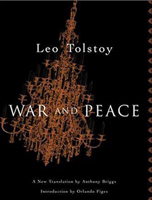 1) War and Peace
1) War and Peace
by Leo Tolstoy
“It seems semi-obnoxious to recommend a book of this length and commitment, but it’s been the most important reading experience of the past three years for me and inspired a desire to read more works by that cranky, bearded Count. War and Peace introduces a group of unforgettable Russians aristocrats living through the French invasion of Russia (1812) and combines realistic dialogue and plot movement with long, philosophical, and historic essays that prompt readers to ask, what is history? Is it advanced by the acts of remarkable men, or is it out of men’s hands altogether? This book would take most readers through the winter and then some (and there is at least one fantastically beautiful winter sleigh riding scene), but all lovers of 19th-century fiction would savor the experience.”
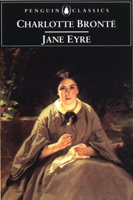 2) Jane Eyre
2) Jane Eyre
by Charlotte Brontë
“This book is often regarded as 19th-century ‘chick lit,’ and that is unfortunate because the truth is that Jane Eyre the novel and Jane Eyre the character have a lot to say about men and masculinity, too. In lavish prose—so sumptuous that you feel literally caretaken by the writer—what constitutes a noble heart, how far one goes for one’s ethics, and whether self-denial might mean self-fulfillment are explored in beautiful, high-minded terms. (Where has this discourse gone?) It’s a deeply meaningful, and dare I say critical, meditation at a time when private and public life no longer seem to summon our consciences like they should, and do for Jane.”
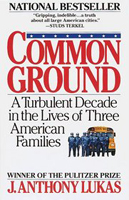 3) Common Ground: A Turbulent Decade in the Life of Three American Families
3) Common Ground: A Turbulent Decade in the Life of Three American Families
by Anthony Lukas
“This is a classic work of nonfiction that everyone with a connection to Boston should read or reread. First published in 1985, the book is a riveting chronicle of the Boston busing crisis told from the distinct points of view of one upper-middle-class white family, one working-class white family, and one African-American family. Common Ground won the Pulitzer Prize for nonfiction, the National Book Award, and the National Book Critics Award. I am not aware of another title that has won all three of these awards. The decade so lucidly and humanely described by Lukas is an historic chapter in Boston’s history, to be sure, and the racial tensions and distrust he skillfully exposes endure to this day.”
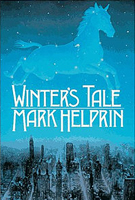 4) Winter’s Tale
4) Winter’s Tale
by Mark Helprin
“Winter’s Tale takes place in New York City and the upper Hudson Valley over a period spanning the latter half of the 19th century and all of the 20th. It is, as one reviewer notes: ‘A deeply consequential, wonder-filled, grand quest for truth; the book revels in beauty, honor, and the silent grace of winter. It has a flying white horse; overpoweringly tender love; breathtaking vistas; swoon-inducing language worthy of Blake, Whitman, and, yes, Shakespeare; hard-souled villains; the most profound and passionate city-as-character construct ever put to paper; hilarity and courage and illumination and memory conjoined; great tragedy and messianic fire and impassible storms and a white cloud wall prophesied to turn pure gold.’”
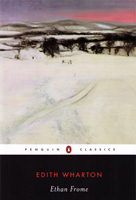 5) Ethan Frome
5) Ethan Frome
by Edith Wharton
“This is not just a classic but a classic winter tale, and in spite of the bitter landscape the novel has as its backdrop, there is a lush (but not dishonest) romanticism and quiet urgency to the dilemmas faced by these New England characters as they navigate tragedy, infidelity, desire, and ostracism—all the great weapons of Wharton in one cold and mysterious season. For another perspective on such timeless themes, it’s worth recommending this classic, too: The Awakening by Kate Chopin.”
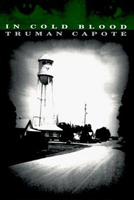 6) In Cold Blood
6) In Cold Blood
by Truman Capote
“This book is often credited with fusing fiction with nonfiction, and it’s well deserved. But what is often forgotten is just how deeply Capote limns the human conscience, or lack thereof, in his portrait of two men charged with a senseless crime. This is one of those books that has a mythology surrounding it, mostly because of the movies based on it and because of Capote’s life, but to get back to the chilling and yet humane prose is a reward that needs no mythologizing.”
 7) The Bacchae
7) The Bacchae
by Euripides
“Greek tragedies can often seem so iconic that their enduring relevance is overlooked. The Bacchae is a great example, with more salience than some contemporary theatre. A community of women, incited to madness by a god, exposes the various insanities of their society, and in the process bring to bear issues of feminism, sexuality, and religion long before these were en vogue.”
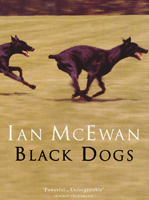 8) Three Selections
8) Three Selections
by Ian McEwan
“Sometimes it’s nice to spend a season getting to know a writer. Destined to be one of the canonical authors of our time, British author Ian McEwan is at his best in Atonement, which has come to be his signature novel about World War II, class, and the question of redemption, but those themes also play out with great power in two other, lesser known novels of his: Amsterdam and Black Dogs. The second adds friendship and betrayal into the mix, and in the third Europe’s transformation at the time of the fall of the Berlin Wall becomes a rather sinister metaphor for marriage.”
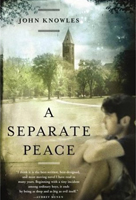 9) A Separate Peace
9) A Separate Peace
by John Knowles
“Here’s a book that appeals to both adolescents and adults (and has a great winter section to boot). If you read it as a high school student, you’ll get even more out of it as an adult. If you haven’t read it, why not read it with your high school student? The short novel is one of the most stirring meditations on love and friendship ever written (and one of the most perceptive on young men, a class of character that doesn’t get drawn well very often). There is great guilt and great forgiveness here, and the way our pasts forever haunt us is, well, hauntingly rendered. Plus, the writer’s inspiration was apparently his time at Deerfield Academy.”
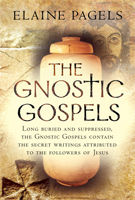 10) The Gnostic Gospels
10) The Gnostic Gospels
by Elaine Pagels
“The Christmas story dominates this season, but is it merely a version of an untold, possibly suppressed story? That’s what Pagels asks in this analysis of sacred texts discovered by an Egyptian peasant in 1945. The texts challenged the orthodoxy of one of human history’s most pervasive faiths, provoking debate on such dogmatic pillars as the trinity, the resurrection, and the immaculate conception, among others. But the book is no dry affair; it illuminates faith and politics—not exactly an ‘ancient’ subject matter—in a refreshingly soulful way.”
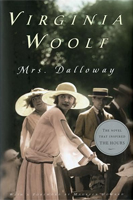 11) Mrs. Dalloway
11) Mrs. Dalloway
by Virginia Woolf
“Yes, yes, you saw The Hours in the theatre, perhaps read Michael Cunningham’s novel, but please don’t hesitate to return to the source, Virginia Woolf’s Mrs. Dalloway. Follow Clarissa through the course of one day in June in London. Amid gorgeous imagery of flowers and first love, you’ll also feel the searing effects of war on shell-shocked veterans and their overwhelmed families, with a backdrop of an insensitive medical establishment that seeks its own betterment. How contemporary can a classic be!”


